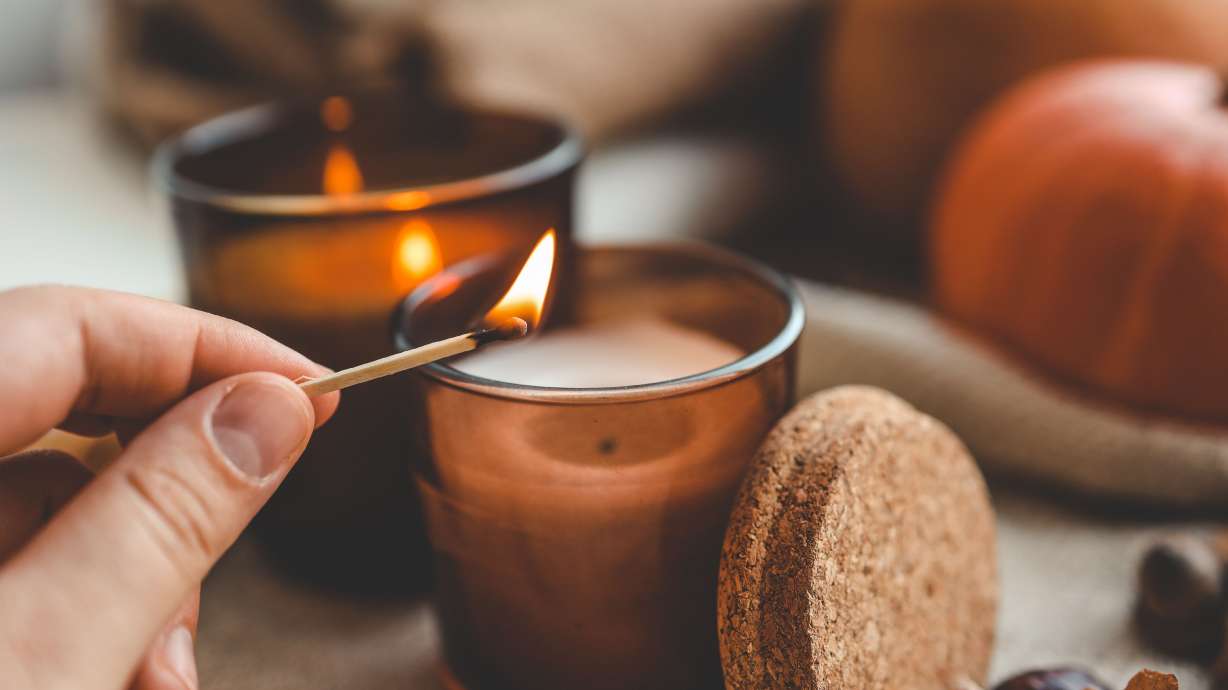Estimated read time: 3-4 minutes
This archived news story is available only for your personal, non-commercial use. Information in the story may be outdated or superseded by additional information. Reading or replaying the story in its archived form does not constitute a republication of the story.
SALT LAKE CITY — Google "scented candles and health" and you'll see some pretty sobering headlines about the risk of toxic pollution invading your home.
The truth is more measured, the potential harm subject to mitigation.
Dr. Jyota Matta, a pulmonologist at the Jersey City Medical Center, told Verywell that patients can be sensitive to fragrance. Those folks may experience headaches, shortness of breath and coughing. "Fall fragrances seem to be the harshest compared to the delicate floral fragrances, and I know quite a few who are sensitive to pumpkin spice," she said.
"It has nothing to do with the toxicity of the candle burning. It has to do with the fragrance of that candle," she added.
Candles do release some chemicals, but most people will not have problems with the amount that is released. And there are candle options, including natural wax candles or not burning them for more than four hours, the article says.
"In general, these emissions occur in small amounts that do not exceed established guidelines for indoor air quality and are therefore unlikely to cause harmful effects for most people," Dr. Kelly Johnson-Arbor, a medical toxicology physician in Washington, told Verywell.
According to Everyday Health, the issue with candle burning, aside from fragrance sensitivity, is volatile organic compounds — often called simply VOCs. They are "found in many household items, including paints, cleaning products and fuels and humans are regularly exposed to them," the article said. "The question is, do scented candles produce VOCs in high enough concentrations to cause harm."
A study in the journal Regulatory Toxicology and Pharmacology found that "under normal conditions of use scented candles do not pose known health risk to the consumer."
The trick is not burning candles all the time or for very long periods. And making sure that the area is well-ventilated. That said, however, Dr. Purvi Parikh, an allergist and immunologist with Allergy & Asthma Network in New York City, told Verywell that scented candles can trigger asthma attacks and allergic reactions, as well as flares in chronic obstructive pulmonary disease or other breathing issues.
Parikh suggests that older adults and people with allergies, asthma, cancer, heart disease or who are immunocompromised avoid burning scented candles.
Pets can also be allergic to the scents.
Today.com points out that there's always a fire danger with candles. It cites the National Fire Protection Association, which says about 20 home candle fires are reported each day in the United States.
"Between 2015 and 2019, U.S. fire departments responded to an estimated 7,400 home fires started by candles per year — these caused an average of 90 deaths and 670 injuries annually and hundreds of millions in property damages, per the NFPA," Today reported.
The size of the room, the number of candles burning and ventilation all matter. Pamela Dalton, a scientist at the Monell Chemical Senses Center, told Today that "if you're sitting in a closet with 12 candles burning around you, you might be able to generate an atmosphere that could have some impact."
Dalton added that "the science just isn't there to say that one wax is worse or better than another."
As for worries that candle wicks contain lead, the U.S. Consumer Product Safety Commission said that's no longer the case and hasn't been for close to a half-century.









